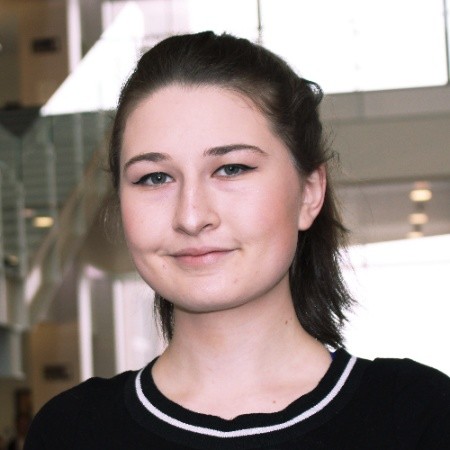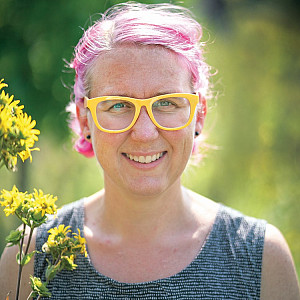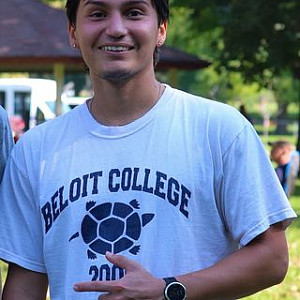Between empathy and violence
Anthropology major Katherine Spicer’19 landed an internship last summer while in the middle of a summer course during her Washington Semester at American University in D.C. A homework assignment led to piloting a survey in a psychology lab at the University of Pennsylvania.
Katherine attended a class in the sustainable development concentration at American. One day, her professor asked the class to find an article they found interesting to share. She searched for psychology articles on the Pulitzer Center’s website. “In college, I didn’t really focus on psychology at all, but I find myself doing psychology readings all the time on my own time,” Katherine says.
There, she found an article that changed the course of her summer: “The Brain’s Empathy Gap” by Janeen Interlandi. Katherine was amazed that psychology researchers were interested in such a relevant and important topic as empathy. “I was like, ‘This is someone’s job?’” she exclaims. “My whole life I’ve been thinking a lot about empathy, so it was crazy to me that someone was getting paid to look into everything around it.”
The article focused on conflict resolution. “The reason I went to D.C. was because I didn’t know what I wanted to do with my life, really,” she explains. “I realized that in everything I had done, the things I always focused on were people. The common pattern was that I was doing conflict resolution.”
Katherine decided to reach out to Emile Bruneau, a researcher at the UPenn’s Peace and Conflict Neuroscience Lab, who did research for the article, and received an email back almost immediately. After completing an interview and background research on the topic, Katherine was offered a position in the lab.
To prepare, she read the rest of Bruneau’s published works and tried to absorb the complex methods he used. “They were doing social psychology research, and I had no psych background and no quantitative background,” Katherine says. She continued to follow up with Bruneau, and he received funding from a non-profit called Beyond Conflict to allow her to live and work in Philadelphia for the rest of the summer.
Working in a psychology lab had its ups and downs. “The whole experience was a huge learning curve for me because I realized I had a lot of issues with confidence,” Katherine says. “I had to learn to recognize that people in the lab had been working on this kind of stuff for years, and I was coming in completely new. I needed to stop comparing myself.”
Katherine assisted in developing a pilot survey that would observe inter-group conflict in Russia. As a fluent Russian speaker who also partially grew up in the country, she brought real experiences and social awareness to the research. Katherine’s own family is Tatar, a Turkic ethnic group seen as a minority population in Russia and other Eastern European and Asian countries. She worked on a portion of the project with post-graduate student Samantha Moore-Berg that required looking through and compiling videos of child soldiers, refugees, and migrants. She found it difficult not to get wrapped up in the work, especially when images and stories hit close to home. “You’re discussing violence 24/7,” she says. “This is really horrible stuff, and we were sheltered because we were in a lab.”
The project she worked on explores how different ethnic minority groups in Russia are targeted, and what forms of oppression they experience, to better determine the most appropriate conflict resolution methods.
“There’s so many reasons why a lot of these things happen,” she says. “I learned a lot about the roles of narratives in conflict and how they help uphold structures. It’s really easy for people in power to create narratives that support themselves and diminish the pain they’re causing to others.”
Now, Katherine is still trying to find an outcome measure for the Russian survey, which she translated with the help of Russian professor Olga Ogurtsova. Coming back in the fall and taking a class about narratives with Jennifer Esperanza, associate professor of anthropology, connected the dots between what she learned in the lab and how she can explore the topic further in her studies and possibly her future career.
“My anthropology teachers are amazing, and they are part of the reason I came in [to work in the lab] with the ability to ask certain questions,” Katherine says. “Now I am seeing how we create our realities. A lot of conflict happens when realities clash.”



